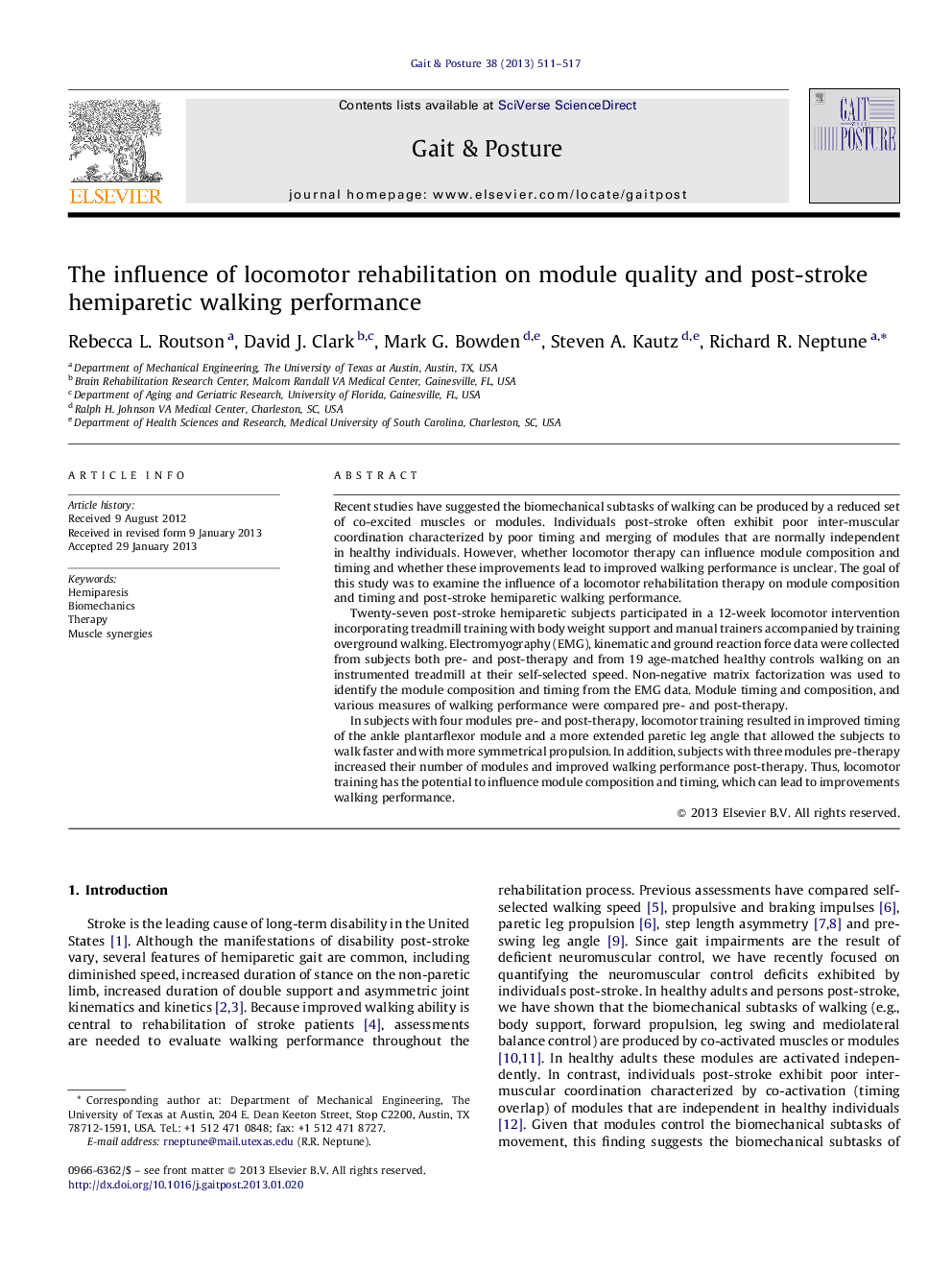| کد مقاله | کد نشریه | سال انتشار | مقاله انگلیسی | نسخه تمام متن |
|---|---|---|---|---|
| 6206649 | 1265650 | 2013 | 7 صفحه PDF | دانلود رایگان |
Recent studies have suggested the biomechanical subtasks of walking can be produced by a reduced set of co-excited muscles or modules. Individuals post-stroke often exhibit poor inter-muscular coordination characterized by poor timing and merging of modules that are normally independent in healthy individuals. However, whether locomotor therapy can influence module composition and timing and whether these improvements lead to improved walking performance is unclear. The goal of this study was to examine the influence of a locomotor rehabilitation therapy on module composition and timing and post-stroke hemiparetic walking performance.Twenty-seven post-stroke hemiparetic subjects participated in a 12-week locomotor intervention incorporating treadmill training with body weight support and manual trainers accompanied by training overground walking. Electromyography (EMG), kinematic and ground reaction force data were collected from subjects both pre- and post-therapy and from 19 age-matched healthy controls walking on an instrumented treadmill at their self-selected speed. Non-negative matrix factorization was used to identify the module composition and timing from the EMG data. Module timing and composition, and various measures of walking performance were compared pre- and post-therapy.In subjects with four modules pre- and post-therapy, locomotor training resulted in improved timing of the ankle plantarflexor module and a more extended paretic leg angle that allowed the subjects to walk faster and with more symmetrical propulsion. In addition, subjects with three modules pre-therapy increased their number of modules and improved walking performance post-therapy. Thus, locomotor training has the potential to influence module composition and timing, which can lead to improvements walking performance.
⺠Locomotor training resulted in improved timing of the ankle plantarflexor module. ⺠This allowed subjects to walk faster and more symmetrically. ⺠However, these improvements depended on the number of modules pre-therapy. ⺠Locomotor training can influence module organization leading to improved mobility.
Journal: Gait & Posture - Volume 38, Issue 3, July 2013, Pages 511-517
